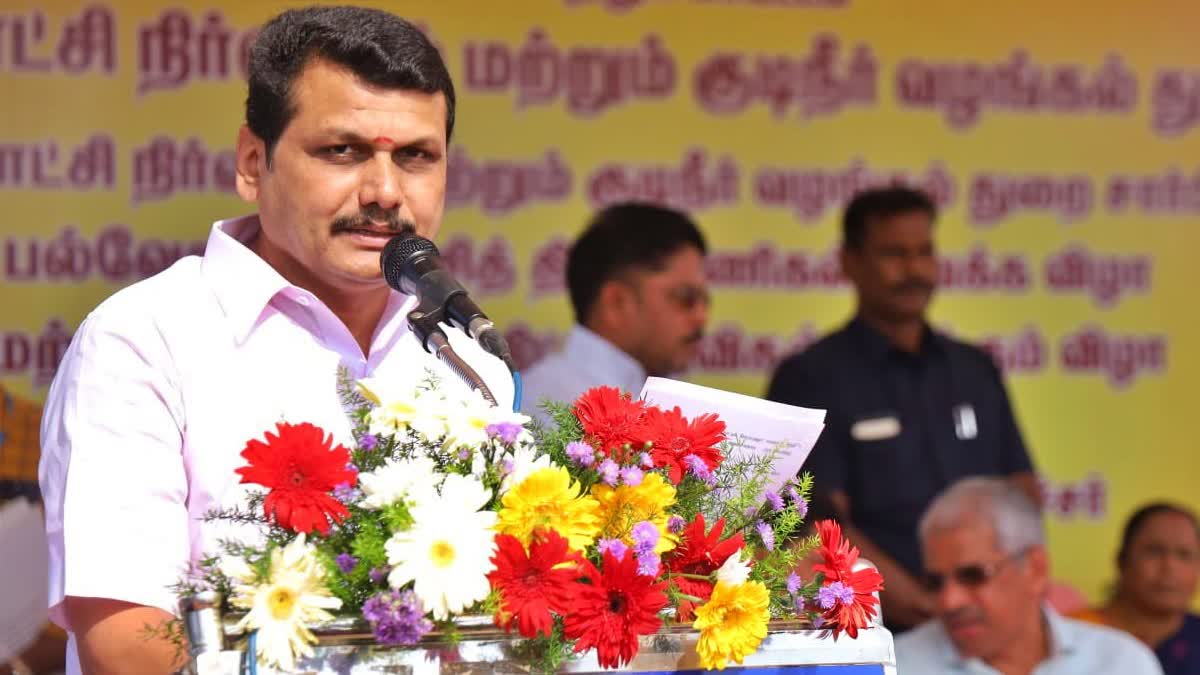New Delhi:The Supreme Court Monday allowed the Enforcement to take Tamil Nadu minister V Senthil Balaji into custody for interrogation till August 12. The apex court held that no writ petition of habeas corpus would be maintainable if a person is produced before a judicial officer within 24 hours of arrest and stressed that Balaji’s admission to the hospital cannot be termed as physical custody.
A bench comprising justices A S Bopanna and M M Sundresh Solicitor General Tushar Mehta was right in his submission that apart from the fact that the word “custody” is different from “detention”, it can only be physical. “As pointed out by him even the High Court has observed that the appellant continues to be in judicial custody. Admittedly, physical custody has not been given to the respondents. Admission of the appellant to the hospital of his choice cannot be termed as physical custody in favour of the respondents”, said the apex court, in its 87-page judgment.
Justice Sundresh, writing the judgment on behalf of the bench, said custody could not be taken on the basis of the interim order passed by the high court which certainly shall not come in the way of calculating the period of 15 days. The top court said an investigating agency is expected to be given reasonable freedom to do its part. “To say that the respondents ought to have examined the appellant in the hospital, and that too with the permission of the doctors, can never be termed as an adequate compliance”, said the bench.
Also read: TN minister Senthil Balaji preventing us from interrogating him in custody: ED tells SC
The top court junked pleas filed by Balaji and his wife Megala challenging the Madras High Court's judgment allowing ED custody of Balaji and rejecting a habeas corpus petition. The court referred the matter to the Chief Justice of India to set up a bigger bench “to decide the larger issue of the actual import of Section 167(2) of the CrPC, 1973 as to whether the 15 days period of custody in favour of the police should be only within the first 15 days of remand or spanning over the entire period of investigation of 60 or 90 days (of filing the charge sheet), as the case may be, as a whole”.
